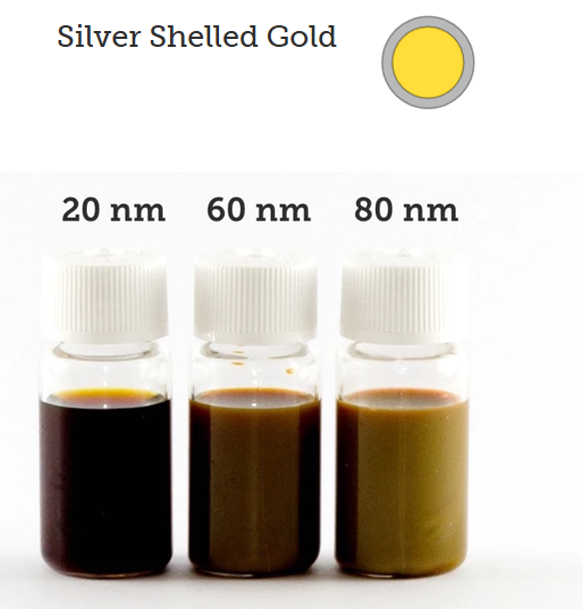Procedure: spICP-MS analysis of chemically labelled or core-shell ENMs
University of Birmingham utilises a PerkinElmer NexION 300D spICP-MS instrument. The following analytic procedure has been applied to silver shelled gold core (Au@Ag) ENMs and Ho@TiO2 core-shell ENMs.
 |
|
Mechanisms & Methods |
Used for |
|
Transport efficiency of the instrument was determined using 20 nm, 40 nm, and 80 nm gold nanoparticles from BBi solutions diluted to 50,000 particles per mL by serial dilution in MilliQ water. NIST gold 1 part per billion (1 ppb which is equivalent to 1 mg/L), 2 ppb and 3 ppb ion standards, and 40 nm and 80 nm Ag ENMs from BBi solutions were used to calibrate the NexION 300D for analysis of each element in the Au@Ag particles. Individual NIST holmium and titanium, 1 ppb, 2 ppb and 3 ppb ion standards from Aristar were used to calibrate the NexION 300D for analysis of each element in the Ho@TiO2 ENMs. |
Pristine Particle: Ho@TiO2 |
Read more |
Read also |
|
Core-shell NaHoF4@TiO2 NPs: A Labelling Method to Trace Engineered Nanomaterials of Ubiquitous Elements in The Environment. Cui X, Fryer B, Zhou D, Lodge R, Khlobystov A, Valsami-Jones E, Lynch I. ACS Applied Materials & Interfaces, 2019, 11, 19452-19461. https://pubs.acs.org/doi/10.1021/acsami.9b03062 |
Analysis of SiO2 Nanoparticles in Standard Mode with Single Particle ICP-MS. PerkinElmer Application Note, undated. |
Contact
 Benjamin Fryer
Benjamin Fryer
 Iseult Lynch
Iseult Lynch
